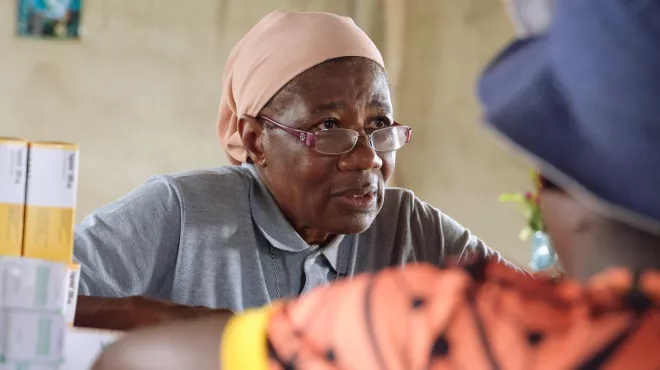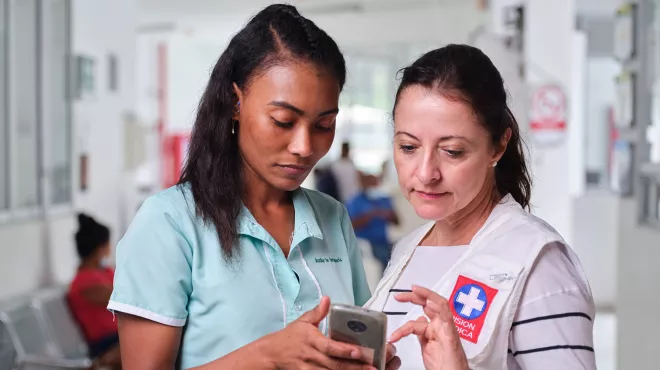Dr. Chang As Xinh, 37, is one of just 15 doctors who deliver medical care to more than 40,000 people living in Mù Cang Chải, a rural district of Yen Bai province in northeast Vietnam. It’s a very poor part of the country rich in natural beauty and inhabited mostly by H’mong people, an ethnic minority.
Dr. Xinh grew up in Mù Cang Chải, so he understands local traditions and speaks the H’mong dialect, enabling him to communicate easily with patients, understand their ailments and treat them. The H’mong have numerous health problems, some linked to traditional beliefs and lifestyles. For instance, it is still common here to use open fires to cook and heat houses and the indoor air pollution has led to widespread respiratory ailments.
Giang Giua Cua, 77, is typical of the patients that Dr. Xinh sees. He has Chronic Obstructive Pulmonary Disease (COPD) after many years of inhaling smoke at home. Because he is short of breath, Cua is no longer capable of trekking to the community hospital, so the doctor must come to him.
Respiratory illness is just one of the chronic diseases that are on the rise in Vietnam, as they are elsewhere in the world. For instance, cases of diabetes have tripled in Vietnam over the past decade, according to the World Health Organization. Hypertension is also on the increase. These and other chronic ailments, which can require ongoing treatment for years or even decades, are adding significantly to the existing burden felt by healthcare providers.
Efforts to improve public health in the region have been complicated by locals’ reliance on traditional medicines, as well as their reluctance to seek medical attention. And the need for more healthcare professionals remains acute, says Dr. Cu Hong, director of the Mù Cang Chải community hospital.
But the situation is changing. Mù Cang Chải will eventually benefit from a program begun in 2013 by the Ministry of Health to increase the number of rural doctors. Efforts are underway to reinforce health education and healthcare delivery in rural Vietnam. One initiative is Healthy Family, or Cung Song Khoe in Vietnamese. It replicates an existing successful for-profit social venture, Arogya Parivar, developed by Novartis in India in 2007. Cung Song Khoe was launched in 2012 by Novartis in collaboration with the Vietnamese government, and involves doctors working at community health centers to raise health awareness among rural communities, and expand access to treatment and health screening.
In Mù Cang Chải, for instance, doctors are making strides in the area of disease prevention. Community clinics run patient-education classes to inform people about the risk of developing chronic illnesses such as diabetes and hypertension. And they offer diagnostic tests, uncovering problems before they become acute.
Such progress gives Dr. Hong hope. He believes that education will help people adopt healthier lifestyles. And he looks forward to the arrival of more medical personnel to reinforce the efforts that he and Dr. Xinh are making.



